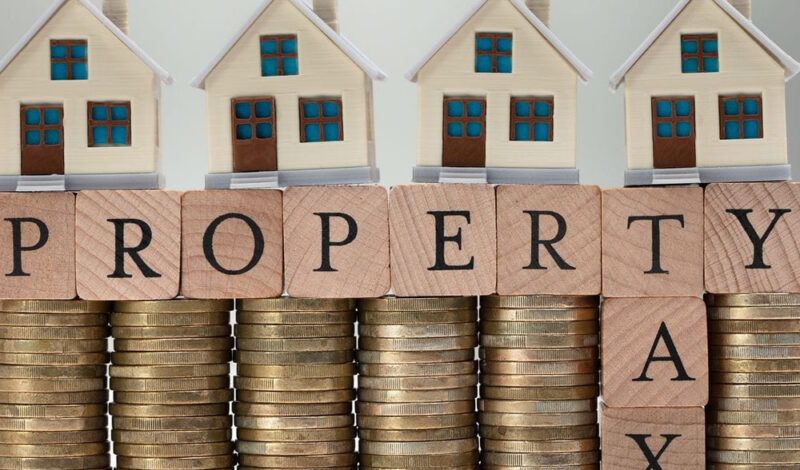Property Tax Planning in the UAE: What You Must Know
The United Arab Emirates (UAE) has established itself as a global business hub, attracting a significant number of expatriates and investors seeking favorable tax regimes and a thriving economy. With its attractive tax policies, including the absence of personal income tax and corporate tax in many sectors, the UAE provides ample opportunities for individuals and businesses to flourish. However, it is crucial to understand the nuances of property tax planning in the UAE to maximize benefits and minimize liabilities. In this comprehensive and detailed article, we will delve into the intricacies of property tax planning strategies in the UAE.
What is Property Tax Planning?
Property tax planning refers to the strategic management and optimization of taxes related to real estate ownership. It involves developing a plan to minimize property tax liabilities while maximizing benefits and potential tax advantages within the legal framework of the specific jurisdiction. Property tax planning encompasses various strategies, including understanding tax regulations, timing property transactions, utilizing appropriate holding structures, optimizing deductions, and complying with reporting requirements. The goal is to reduce the financial burden of property taxes and enhance the overall financial position of property owners.
- Understanding Property Taxes in the UAE:Property tax regulations in the UAE vary depending on the emirate. For example, Dubai and Abu Dhabi impose property registration fees, while rental income from residential properties is generally exempt from tax. On the other hand, some other emirates impose municipal taxes on properties. To develop an effective tax planning strategy, it is essential to familiarize yourself with the specific tax regulations in the emirate where you own property.
- Timing Considerations:Timing plays a significant role in property tax planning in the UAE. For example, in Dubai, property owners can benefit from the “off-plan” property purchase option. This option allows them to pay the property registration fees in installments over an extended period, thus optimizing cash flow and avoiding unnecessary financial strain. By carefully timing the purchase and registration of a property, owners can align their financial obligations and tax planning goals.
- Holding Structures:Choosing the right holding structure for your property can be crucial for tax planning in the UAE. Many investors opt for offshore companies or free zone entities to hold their real estate assets. These structures offer benefits such as asset protection, ease of transfer, and potential tax advantages. By working with legal and tax advisors familiar with UAE regulations, property owners can determine the most suitable holding structure for their property, considering factors such as liability protection, estate planning, and tax optimization.
- Rental Income Tax Planning:While rental income from residential properties is generally exempt from taxation in the UAE, commercial property rental income may be subject to tax. Property owners need to be aware of the tax implications and plan accordingly. It is essential to maintain proper records and track expenses related to the rental property to maximize deductions and minimize the tax burden associated with commercial property rentals. Engaging professional tax advisors with expertise in UAE property taxation can help navigate the complexities and ensure compliance with tax regulations.
- Estate Planning and Inheritance Tax:One of the notable advantages of property ownership in the UAE is the absence of inheritance tax on property assets. However, effective estate planning is crucial to ensure the smooth transfer of property ownership and minimize potential liabilities for beneficiaries. Engaging professional advisors who are well-versed in UAE estate planning laws can help navigate the complexities and create a robust plan that aligns with your objectives. Proper estate planning can help preserve and protect the value of your property assets for future generations.
Read more about- International Tax Lawyer in the UAE: A Key to Resolving Tax Disputes
Conclusion: property tax planning in the UAE
Effective property tax planning in the UAE requires a thorough understanding of the regulations, careful consideration of timing, and the implementation of suitable holding structures. By adopting proactive tax planning strategies, property owners can maximize benefits, minimize tax liabilities, and optimize their real estate investments. It is strongly recommended to seek professional advice from experienced legal and tax advisors who specialize in UAE property taxation. These professionals can provide personalized guidance based on your specific circumstances, ensuring compliance with tax regulations and helping you make informed decisions regarding your property assets. With proper tax planning, you can enhance your financial position and make the most of the opportunities available in the dynamic UAE real estate market.
You may want to know: Resolving Tax Dispute in the UAE: Seeking redress through VAT Reconsideration
Property Tax Lawyers in Dubai
A property tax lawyer at Souzan El Kayaji Legal Consultancy Lawyers can offer valuable assistance with property tax planning in the UAE. Their expertise in UAE property tax regulations enables them to provide comprehensive guidance and support. They can help property owners understand the specific tax laws and regulations applicable to their properties, ensuring compliance and minimizing potential liabilities. The property tax lawyers at Souzan El Kayaji Legal Consultancy Lawyers in Dubai can also provide advice on structuring holding entities, such as offshore companies or free zone entities, to optimize tax benefits and asset protection. They can assist with estate planning strategies, ensuring a smooth transfer of property ownership while minimizing tax burdens.








